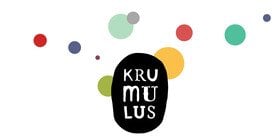Seminar paper from the year 2003 in the subject American Studies - Literature, grade: 2,0 (B), University of Münster (English Seminar), course: Inventing American History: The Beginnings of the American Historical Novel, language: English, abstract: My research paper is designed to clarify the aspects central to the issue of manhood negotiated in James Fenimore Cooper's novel The Last of the Mohicans (1826).
In the Victorian era, manhood had been positively attributed to the white race exclusively. In novels and illustrations, the ideal man fit the "Victorian ideals of manhood" (Rotundo 37-40) with fixed traits and attributes, such as courage, sexual self-restraint, a powerful will, and a strong character. As we will see, no male in the novel fits such a formula completely. I will then postulate what drives Cooper to bestow such an image on his male heroes.
The "Victorian ideals" did not apply to all male people. "Savage" men, as Uncas and his father in the novel, were not considered to possess the distinct traits attributed chiefly to non-savage men, i.e. the white-male. Manliness was clearly linked to white-male supremacy and civilization; a long-held belief in American culture for centuries. The encounter between the "uncivilized brutish" and the whites is a dominant theme in the novel. We will see that the combining issue of race, gender, culture and civilization is inextricable and fundamental for the study of the subject and therefore will be elaborated on in detail.
Many historians have falsely assumed that manhood has a strict, self-evident set of traits, unchanging over time. Other historians have emphasized the fact that the set of traits attributed to manhood varies from period to period, from class to class. This lead to a continual need for redefining male character traits at any historical moment, which often problematically presented itself in coexisting but contradictory views on manhood at a special period.
Cooper, of course, was deeply familiar with the period's masculine ideal of manhood, and understood that Victorian readers expected to find these qualities of manliness assigned to his male characters. Indeed, these attributes are present in the white male figures in the novel, but more importantly, Cooper does not hesitate to display an image of white men that portrays male deficiency in various aspects and situations. In chapter III. and IV., this issue is discussed in detail.
Sie können dieses eBook zum Beispiel mit den folgenden Geräten lesen:
• tolino Reader
Laden Sie das eBook direkt über den Reader-Shop auf dem tolino herunter oder übertragen Sie das eBook auf Ihren tolino mit einer kostenlosen Software wie beispielsweise Adobe Digital Editions.
• Sony Reader & andere eBook Reader
Laden Sie das eBook direkt über den Reader-Shop herunter oder übertragen Sie das eBook mit der kostenlosen Software Sony READER FOR PC/Mac oder Adobe Digital Editions auf ein Standard-Lesegeräte.
• Tablets & Smartphones
Möchten Sie dieses eBook auf Ihrem Smartphone oder Tablet lesen, finden Sie hier unsere kostenlose Lese-App für iPhone/iPad und Android Smartphone/Tablets.
• PC & Mac
Lesen Sie das eBook direkt nach dem Herunterladen mit einer kostenlosen Lesesoftware, beispielsweise Adobe Digital Editions, Sony READER FOR PC/Mac oder direkt über Ihre eBook-Bibliothek in Ihrem Konto unter „Meine eBooks“ - „online lesen“.
Bitte beachten Sie, dass die Kindle-Geräte das Format nicht unterstützen und dieses eBook somit nicht auf Kindle-Geräten lesbar ist.
 Und dann auf "Zum Home-Bildschirm [+]".
Und dann auf "Zum Home-Bildschirm [+]".


